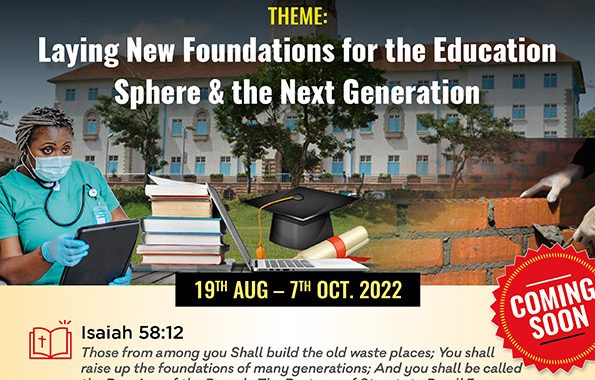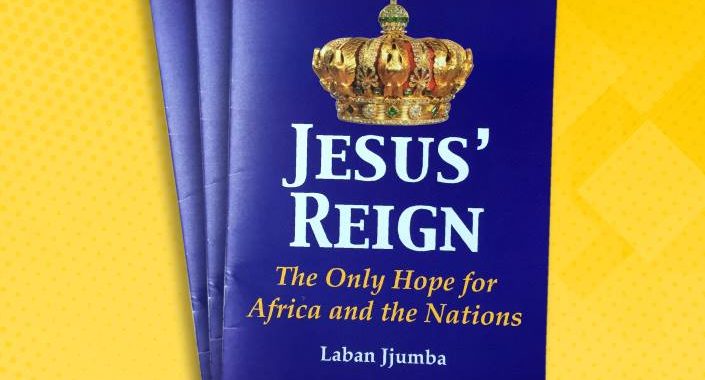The church services and prayer meetings following Uganda’s Presidential Elections are some of the most difficult to lead because inevitably some people are sad/angry, while others are glad/relieved. So every word said in such meetings is measured/weighed and either found wanting or passed. Speakers are judged and given attention depending on which side they are perceived to belong, and depending on what they say. Our corporate prayers rarely reach heaven because of the divisions in our midst – indeed many use such prayer times to make a point to “the other side” rather than to address God. So when I was asked to lead the prayer time for the nation during a post election church service, I decided to think through and write down my thoughts before hand. I pray I have your attention to the end.
The first National Elections I witnessed were the 1980 Elections. They were the second national elections following the 1963 Independence Elections. They had very strong tribal sentiments and undertones. In the aftermath of that election were divided marriages, families, and friends; not even churches were spared. I remember one church service that could have split our church in two, were it not for mature church leadership. One of the church leaders was running as a parliamentary candidate for a major political party. He was firmly convinced of what he was doing, and indeed went on to genuinely win without campaigning. However other church members were vehemently opposed. Some strongly disliked his party (to put it mildly) and made no secret of it. The maturity of the church leadership enabled us sail through those turbulent times and come out still in the same ship. Quite a feat I must say!
That was my first experience of how an election can divide people. Bitter words were exchanged. Erstwhile friends became enemies as people migrated into their camps. Everywhere it was “us” versus “them”. It was a distressing time for those of us with both Luo and Bantu blood flowing through our veins. What I heard largely depended on which set of relatives I was with. My hatred for tribalism deepened during that time.
The 2016 Presidential Elections have been a déjà vu experience for me. They have been very similar especially in the intensity. In the past two weeks I have heard and seen words from brethren and friends that have made me wonder whether we have learnt anything from our history. This time though unlike in 1980, I am in various positions of leadership: church leadership, business leadership, in the leadership of a national prayer movement, and in leadership of various initiatives in the market place. All of these have people with different political leanings. This put me in a position where I could hear sharp words from both sides of the political divide. Indeed some of those sharp arrows had a direct hit on me.
Some of the consequences of such times never come to light especially for the most vocal voices in our midst. For example, based on what has been happening, I am pretty sure that in the past few weeks, without knowing it, some people have lost business opportunities or clients that were coming their way, other opportunities that were in the offing shut down, flourishing friendships have had the kiss of death, and even budding friendships are in the process of aborting. At least for a while, important decisions will have an additional vetting question, “which side does he or she belong to?” This will be played out in boardrooms, appointment committees, drinking places, and even when considering marriage propositions.
Some things have helped me in this time:
- The knowledge that over the past year I have spent quality and quantity time praying for the political process. I believe in a God who answers prayer and so I have had peace that I would not otherwise have had.
- The knowledge that this God is righteous, just, full of truth and mercy. He knows much more than we can ever know and He does not let evil go unpunished wherever it occurs. We however do not always have access to the whole truth though we tend to talk and act as if we do; we can therefore only judge partially. A lot of behind-the-scenes plans and plots on both sides of the political divide never come to light. Every candidate presents to the electorate his or her best face. That is the nature of elective politics.
- The knowledge that this God is far above partisan politics. In Joshua 5:13, when the Commander of the Armies of the Lord appeared to him before the Jericho battle, Joshua asked the Commander, “Are you for us or against us?” The answer was, “Neither.” In other words, “Yes I brought you out of Egypt, and in the process destroyed the most powerful nation on earth. Yes I supernaturally carried you through the wilderness these forty years to bring you to this place. However I am here to represent God’s agenda, and so will sometimes be for you and other times against you. It will all depend on whether you submit to God’s agenda or not”. That must have shocked Joshua who likely assumed that God was always on his side no matter what. He soon discovered that sometimes God could fight against him (yes, on the side of his enemies) as happened in the Battle of Ai. Joshua had to take off his shoes and submit to God’s plan.
- The decision to be very economical with what I say – to speak less at such times. The weapon that is most destructive or constructive for democracy is the tongue. This is amplified in our generation by the prevalence of technology, social media, etc. Western democracy from its Graeco-Roman roots depends heavily on the ability to speak – the tongue. Apostle James warns us of the power of the tongue – perhaps the spiritual equivalent of a weapon of mass destruction.
So then, my beloved brethren, let every man be swift to hear, slow to speak, slow to wrath; 20for the wrath of man does not produce the righteousness of God.
James 1:19, 20
If anyone among you thinks he is religious, and does not bridle his tongue but deceives his own heart, this one’s religion is useless.
James 1:26
Interestingly God instructed Joshua and the army, apart from the sound of the trumpets, to remain silent during the seven days they marched around Jericho. Only at the every end were they allowed to shout.
10Now Joshua had commanded the people, saying, “You shall not shout or make any noise with your voice, nor shall a word proceed out of your mouth, until the day I say to you, ‘Shout!’ Then you shall shout.”
Joshua 1:10
Over the past few weeks I have sometimes had the impression that this powerful spiritual weapon (the tongue, social media etc.) was in the hands of children. Have we quickly forgotten the central role of the media in the Rwanda genocide? Or perhaps did some people who knew the weapon’s power decide to deliberately unleash it irrespective of the consequences?
I appeal to us all not to say too much in these emotionally charged times. Weigh your words carefully and bridle your tongue. This might require more self control than you thought you had. Like every married couple knows, words said in the heat of the moment are words you live to regret. Such words have the potential to alienate friends and relatives for years to come. Sometimes even when you have a burning point the best thing is to keep silent and first sleep over it especially if you hold a leadership position or aspire for one. Re-tweeting and reposting an item makes you a party to the content. It is dishonest to turn around and say, “It is not me who said it”. Unless clearly stated, presenting someone else’s ideas is saying, “This person said it for me so well that I have nothing to add”.
Social media amplifies the power of the tongue perhaps more than anything else in our generation. Great responsibility is needed for anything that has great power. While we all enjoy the benefits of social media, many are still unaware of its dangers and power to even destroy one’s self. Anything on the Internet can be part of your permanent record. There is already increased access to archival information you may think you deleted (see www.archive.org). Be sure you really want people to read whatever you write, post or repost even 10 years from now. It can be retrieved. Save yourself. Don’t say anything you would not want prospects, clients, vendors, relatives, bosses, potential employers, and even enemies to read. Avoid writing when upset and NEVER be disrespectful. Some of the words written, posted or reposted in the past two weeks will come back to bite and haunt many in the years ahead. Just this week an Egyptian student in the United States is facing deportation because of an angry post he made in the social media concerning one of the American Presidential candidates.
Social media is being used to do background checks on people, vet individuals for credit worthiness, vet them for jobs, assess social capital of people, get insight into people’s character, etc. You would agree with me then that some in the past few days have used social media in the same way that a child would use a grenade or worse. It has been said that being smart is knowing what to say, BUT being wise is knowing whether you should actually say it and if so, which part of it to say, who to say it to, when to say it, where to say it, and how to say it. The Bible calls it bridling the tongue. Let me end with wise counsel from an ancient voice (my emphasis in bold):
2For we all stumble in many things. If anyone does not stumble in word, he is a perfect man, able also to bridle the whole body. 3 Indeed, we put bits in horses’ mouths that they may obey us, and we turn their whole body. 4Look also at ships: although they are so large and are driven by fierce winds, they are turned by a very small rudder wherever the pilot desires. 5Even so the tongue is a little member and boasts great things.
See how great a forest a little fire kindles! 6And the tongue is a fire, a world of iniquity. The tongue is so set among our members that it defiles the whole body, and sets on fire the course of nature; and it is set on fire by hell. 7For every kind of beast and bird, of reptile and creature of the sea, is tamed and has been tamed by mankind. 8But no man can tame the tongue. It is an unruly evil, full of deadly poison. 9With it we bless our God and Father, and with it we curse men, who have been made in the similitude of God. 10Out of the same mouth proceed blessing and cursing. My brethren, these things ought not to be so. 11Does a spring send forth fresh water and bitter from the same opening? 12Can a fig tree, my brethren, bear olives, or a grapevine bear figs? Thus no spring yields both salt water and fresh.
James 3:2-12
I pray we will have the maturity to rise above the events of the past few weeks and journey on as a nation. We owe it to our children and the generation that is emerging.





…desciples of Jesus should be aware that the fate of a nation or people group is determined more by what the righteous do (or don’t do…) – than by party politics, where are the Daniels Deborahs and Josephs of our day – surely we can agree to disagree on politics without being divided as the body of Christ…